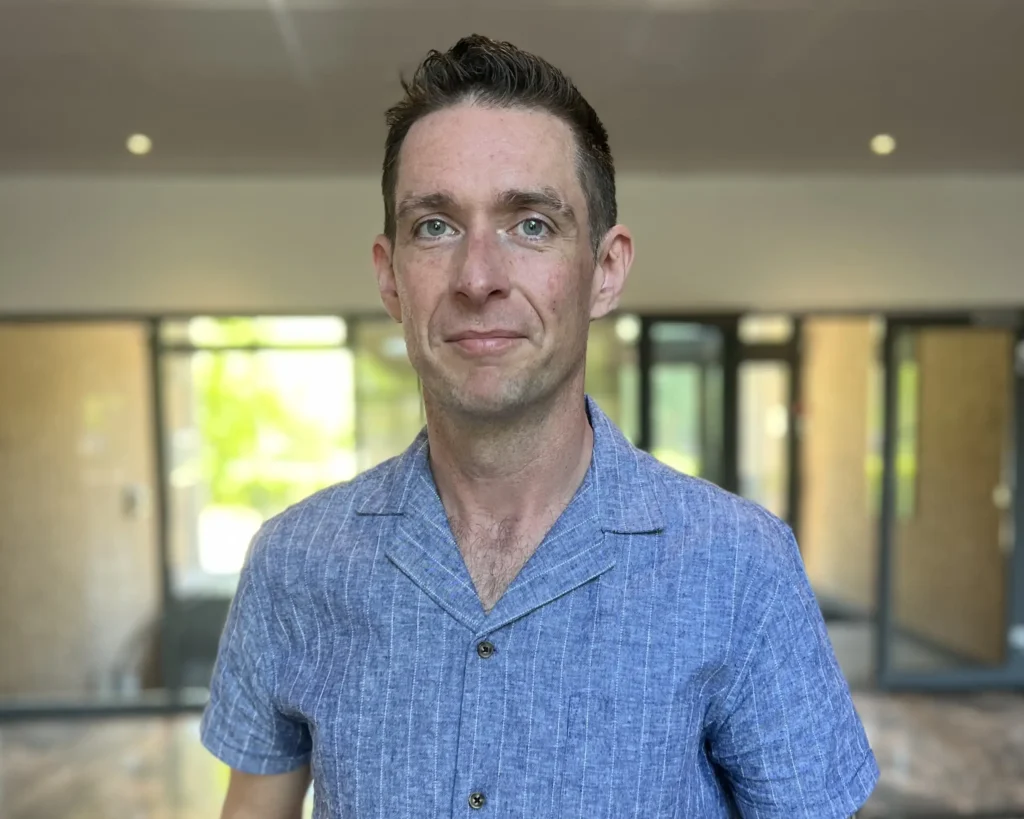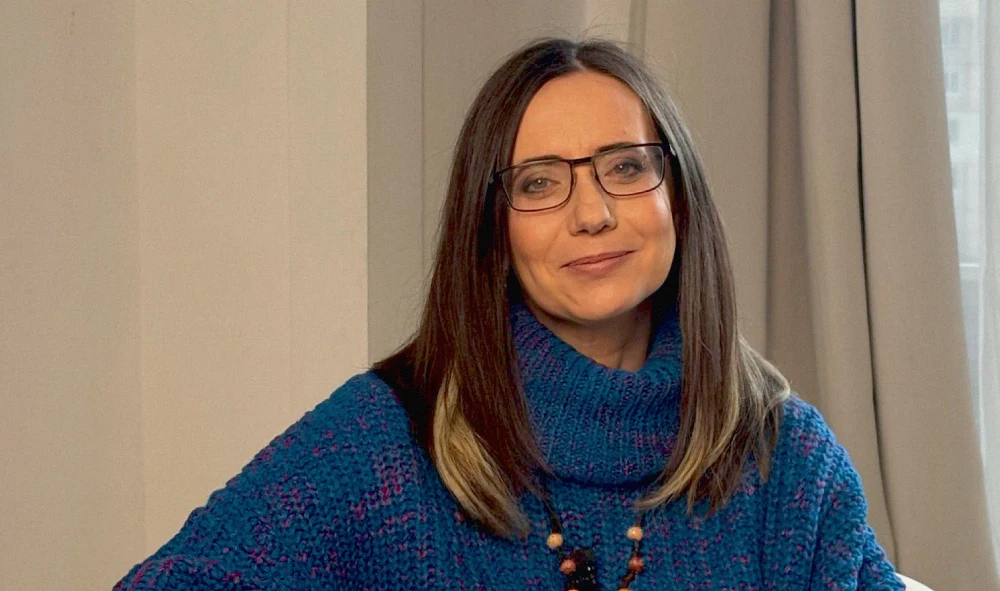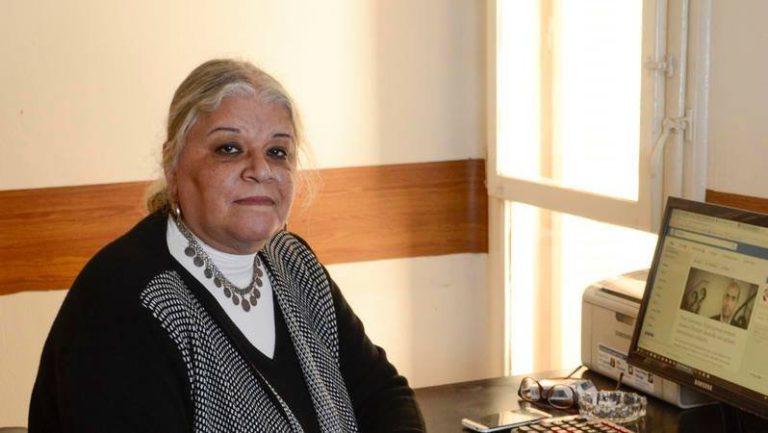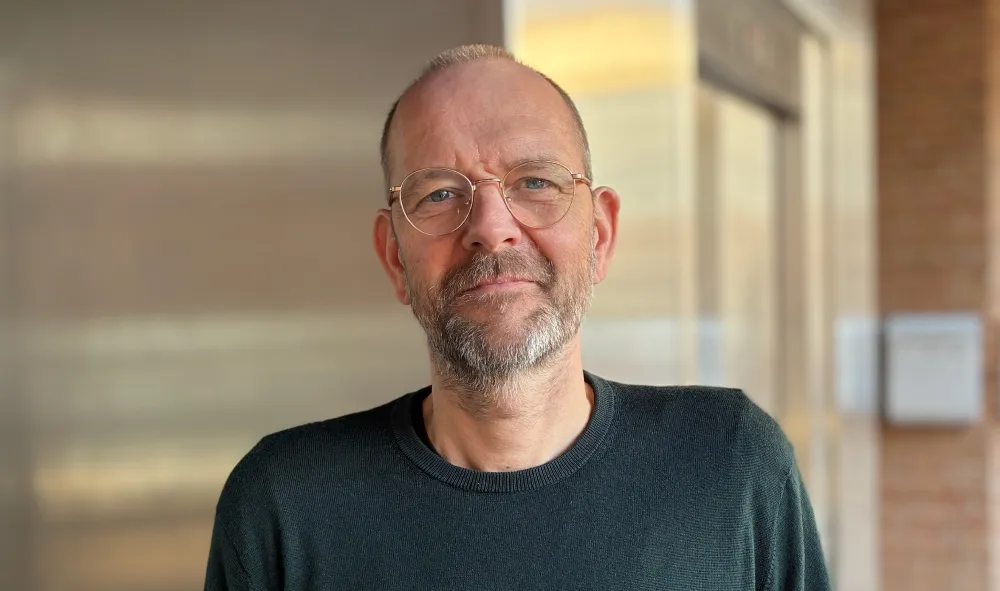By Eoin O’Shea, psychologist, DIGNITY
The Russian military usually attacks at night.
It’s not that their drones, and various missile-types, never need to be defended against during the day; but for either technical or psychological warfare reasons, the attacks most often occur in the early hours, between 01:00 and 07:00. It wears people down, disrupts their sleep, and adds to a general sense of uncertainty and questionable safety.
I felt a slight nervous excitement the first time I heard the air raid siren and retreated to the shelter at my Kyiv hotel – but most Ukrainians no longer go to the shelter… unless a more specifically-informed Telegram channel advises those in a particular oblast/region that something on the way is most definitely not a ‘false alarm’.
As one of DIGNITY’s psychologists – working as a ‘MHPSS Technical Advisor’ on our projects with Ukrainian and Palestinian local partners – I’ve had the chance to visit Ukraine three times since the full-scale invasion in February 2022. Each visit brings variety in terms of both my official work tasks, as well as the more personally affecting moments I encounter.
Professionally, I’ve delivered training to our partners’ staff teams to try and better prepare them for their ongoing work with traumatized Ukrainians; while minimizing the risks of ‘re-traumatization’ along the way. The need for mental health services and psychosocial support is high, with the WHO estimating that around 9.6 million people in Ukraine are at risk of or living with a mental health condition.
The Ukrainians I have met are thirsty for knowledge – and selfless, to a fault, in terms of what they will do for their country and people. There’s a reason why the airline staff tell you to place your own mask on first, before attending even to one’s child. Our Ukrainian partners, generally speaking, ‘put their child’s mask on first’ – which has made the staff-care activities and workshops we also deliver challenging – and all the more important. Staff who document war crimes, and psychologically treat those affected, also require support to maintain their own wellbeing.
My role also includes arranging for more comprehensive training of local mental health clinicians – often through further training in ‘trauma-focused’ models of psychotherapy. The crisis caused by this war did not occur in a vacuum, devoid of anything that came before it. Ukraine has grappled with the legacy of Soviet-style conceptions of mental health – and this has had an impact on relevant services (even aside from the impact of the current war).
Mental health stigma is still a pronounced challenge in Ukraine – and it would seem that a society-wide change in people’s openness to acknowledge and address such challenges is no small part of the efforts required to improve mental healthcare for those in need.
This same stigma is particularly evident in relation to allegations regarding the systematic use, by Russian Forces, of conflict-related sexual violence (CRSV) against both men and women – and even children. We can’t really know yet the true scale of these alleged crimes – but the indications so far are sobering. As previously-occupied areas (those located primarily in the East and South) become liberated, the physical evidence, and testimonies of those relatively few who provide them, say much.
The local buildings containing rooms used as torture chambers. The quiet knowledge, within local communities, of who has been raped. The graveyards I am driven past – richly, and yet darkly, decorated with the blue and yellow adornments of recently-occupied graves.
There are also the lighter moments – literally, on the occasion of walking through Kyiv at night during a blackout. As I walked, carefully, on the cobblestones of Kyiv’s ‘Adriivskyi Descent’, how did I really happen upon that man and woman in the darkness? The man played a street-placed piano – the woman sang mournfully into the blackness.
Or the time our group took shelter during an air raid alert – together with the Irish Ambassador to Ukraine – only to rush, once the alert was called off, to the National Ballet Theatre for that evening’s performance. As I watched the young Ukrainian dancers express such art through their very bodies, I felt in one moment like weeping… but in the next, brimming with a hope made possible by my colleagues in Ukraine and the impact of their mental health efforts.
Through DIGNITY, I will continue to travel to those dark streets and places… until the Ukrainian professionals whom we support have returned the light once more.





